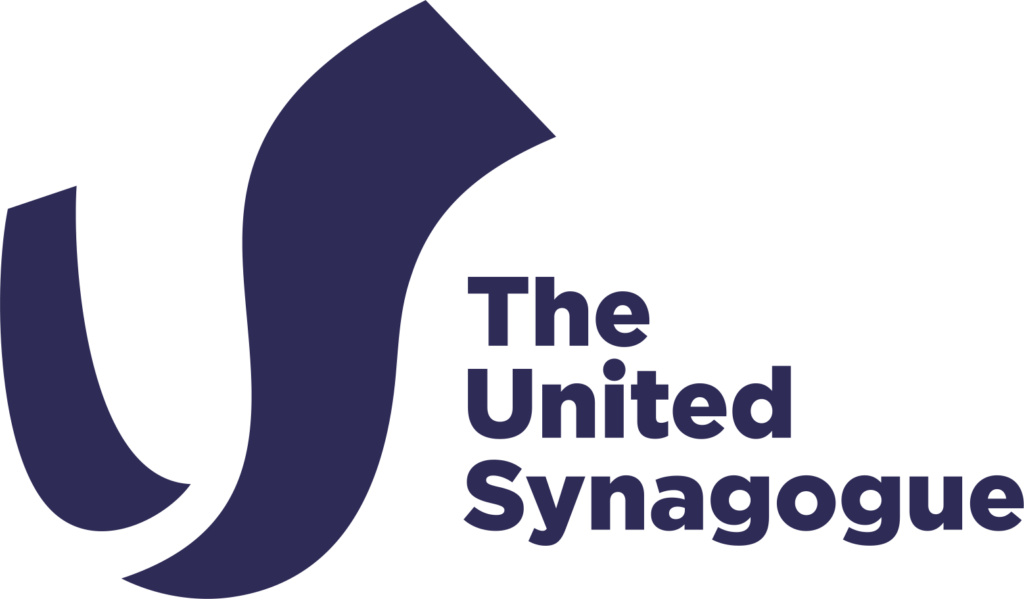A 93-year-old Holocaust survivor has used the occasion of Holocaust Memorial Day to warn a St Albans gathering that though we might forgive the perpetrators, “we must never forget. Hatred against minority groups is still happening; antisemitism is on the rise throughout the world – all the more reason why we should never forget.”
Freddy Berdach BEM was speaking at the city’s annual civic Holocaust Memorial commemoration (January 28, 2024), hosted by the Mayor of the City & District of St Albans, Cllr Anthony Rowlands, and staged this year by St Albans United Synagogue. “Peace is a very fragile thing,” he observed, “and we need to learn how to live in peace with other people.” Meanwhile, the synagogue’s Rabbi Daniel Sturgess laid the blame for the recent rise in antisemitism squarely at the door of social media, “which teaches ignorant and naïve youngsters to hate Jewish people”.
Freddy, who arrived in the UK with his mother in December, 1938 – his father was only able to follow several months later, was the oldest of the three generations who spoke movingly at the event of their experiences of the Holocaust. Freddy, born in Vienna in 1930, and now a great-grandfather, recollected his first encounters as a young boy with the Nazi war machine: the day when he was told he was no longer welcome to return to school and how a shopkeeper was shot in front of him for refusing to obey a Nazi order. Also telling his own story, emphasising how the impact of the Holocaust is still felt by generations long after the end of the war, was Robert Voss, Lord Lieutenant of Hertfordshire. He never knew his grandparents, who were murdered in the gas chambers of Sobibor concentration camp along with over 60 other members of the family. His remarks were echoed by 17-year-old Sammy Barnet, a pupil at Immanuel College, Bushey, who talked of the tremendous effect made on him by his visit on a school trip to the sites of Treblinka and Majdanek concentration camps last November.
Among the audience that packed the synagogue hall for the event were local MP Daisy Cooper; the chair of Hertfordshire County Council, Cllr Terry Douris; St Albans Mayoress, Annie Stevenson; plus many District Councillors as well as members and guests of the two local Jewish communities. A message from the Dean of St Albans, the Very Revd Jo Kelly-Moore, unable to be present because of Cathedral commitments, was read out by the Mayor.
Included in the programme were songs from the Immanuel School choir, accompanied by their teacher, Stephen Levey; memorial prayers from the community leaders, Rabbi Daniel Sturgess of St Albans United and Rabbi Adam Zagoria-Moffet of St Albans Masorti Synagogues; the lighting of six candles in remembrance of the six million Jews who perished during the Holocaust as well as the victims of later genocides in Rwanda, Bosnia, Darfur and Cambodia; and a thought-provoking filmed contribution from the late Chief Rabbi Lord Jonathan Sacks, entitled “What Starts with the Jews…Does not Finish with the Jews”. At its conclusion, the event was described by Elissa Da Costa-Waldman, chair of St Albans United Synagogue, as “a tough evening, but an enlightening and an uplifting one”.
Referring to the occasion as one of the principal dates in the civic calendar, Cllr Rowlands declared that it was an honour to host this event as Mayor on behalf of all residents. “Its place in our civic calendar is also a signal that we recognise its unique significance.” As a former history teacher, it had a particular resonance for him, he said. “History is an adjunct to memory. Without a knowledge and understanding of our past, we risk living in a void. History can teach us to be alert and aware. It provides us with the means by which we can actively and constructively remember. Others can speak with greater authority on the enormity of the Holocaust but what I would say is that we must always act as a society which values democracy, decency and humanity and remains eternally vigilant. Nazism and The Holocaust teaches us that when power is concentrated, opposition crushed and war used as a cover, the potential for man to display inhumanity to man is limitless.”
The Mayor also paid tribute to all those, including Councillor colleagues and those across a number of faith groups, who had worked so hard and selflessly to ensure that understanding and dialogue continued. “In particular, there has been a reaching out to the younger generations – generations, let us face it, already also disturbed by the pandemic, war in Ukraine and, in parts of the world, the rise of the populist Right. I would like to take this opportunity to thank our two Rabbis – Rabbi Daniel and Rabbi Adam as well as Akhtar Zaman from the Islamic Centre of St Albans and Maulana Abdul Muhit from the London Colney Islamic Centre – for all the work they have done to reach out to schools and to speak with students.”
In her introductory remarks, St Albans United Synagogue chair Elissa Da Costa-Waldman, spoke of the theme for Holocaust Memorial Day 2024 “The Fragility of Freedom”. “The terrible events of October 7th, 2023, as well as the war between Russia and Ukraine, really brought that home to us. The whole world feels a very fragile place…..The Holocaust,” she went on, “was so incredible, so shocking, its horrors so unspeakable that the world pledged “never again”. Sadly, however, elements of the human race have not learned the lessons of history. It is a sobering fact that three-quarters of a century from the liberation of the worst of the dehumanising concentration camps, the world has borne witness to yet more genocides….Now to add to this awful litany, still raw and painful, are the events of October 7th, 2023, when Hamas, a proscribed terrorist organisation, perpetrated the most atrocious acts on Israeli citizens, shattering the freedoms they enjoyed in the only democracy in the Middle East. We pray for the hostages to be freed, and for the suffering of all the innocents caught up in this terrible war to be brought to an end so that they can all once again enjoy freedom. Tonight’s event and all such events should be our way of highlighting the fragility of freedom and the need to work against persecution and inhumanity… Tonight is also a celebration of life and the tenacity of the human spirit as demonstrated by the survival of those who live to tell their stories or those who would not be here were it not for those who fought for their and our freedom.” In conclusion, she urged the audience that “tonight, more than ever, please continue to think about the fragility of freedoms we here enjoy and about those who are not so fortunate. Please think about what we can do, individually and as the wider St Albans community, to ensure that simple freedom is not as fragile as it feels at this moment.”
A final word came from Rabbi Daniel Sturgess, minister of St Albans United Synagogue, who first of all thanked each and every person in the audience for their presence, “in particular, to our non-Jewish friends who are here, for standing shoulder to shoulder with the Jewish community of St Albans, and particularly at this time of rising antisemitism, and rising feelings of fear and uncertainty amongst Jews in this country and around the world. Your being here this evening means so very much to us.
“As we have so painfully seen,” he continued, “antisemitism, which has simmered below the surface, has now very much bubbled over and it’s frightening… Hatred, sadly, is on the rise. Devastatingly, Sky News just reported a 104% increase in “antisemitic incidents referencing the Holocaust” – that’s perpetrators using the painful memory of the Holocaust to taunt and attack Jews – and a 268% rise in Holocaust denial. This is why the work of the amazing Freddy Berdach and other survivors is so vital.”
Asking where all this hate was coming from, Rabbi Sturgess was in no doubt as to its source. “The ‘reasons’ for antisemitism are many, but perhaps the single tool that today is causing antisemitism to spread so far and so fast is social media. Social media is a powerful tool – for good and for bad. We see ignorant and naïve young people being educated via TikTok and other social media to hate Jewish people. Ignorance and propaganda are a deadly cocktail. This is what we saw in the 1930s in Germany, which led to the murder of 6 million Jews, and many others besides, in the Holocaust.
The message was clear, he added. “With freedom comes great responsibility. Each of us can play our part in countering the hatred that exists in our world: by educating ourselves and others about the Holocaust, antisemitism and all other forms of racism and bigotry; , how they develop and how to recognise them; and to be courageous enough to call it out when we see it. And by recognising that, as Rabbi Sacks said, Jew-hatred does not just constitutes a threat to Jews, but to all of society; by taking the time and care to ensure our opinions are formed on the basis of facts and not of social media soundbites and agenda-driven media propaganda; and by all the good people of the world teaching our children that the future will be written not by those who pursue violence and murder, but by those who pursue peace and lovingkindness.”


